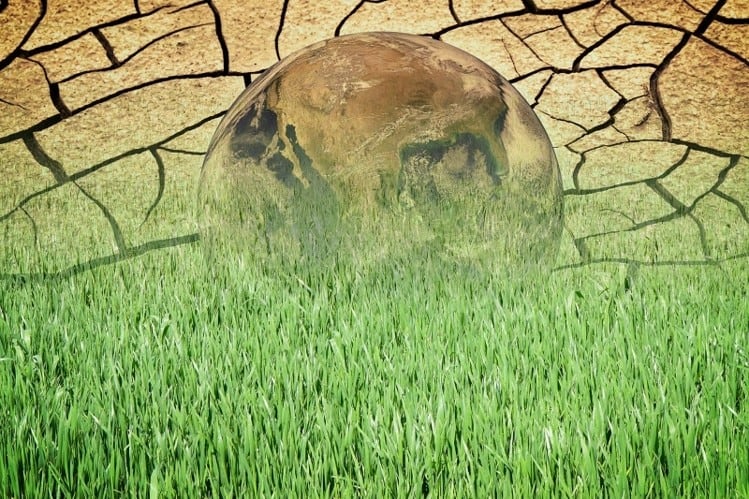With around 70 million children still working in exploitative conditions around the world, according to Germany’s Minister of Economic Co-operation and Development, the EU due diligence directive aims to better protect human rights, including labour rights and the environment. The rules, based on the UN’s guiding principles and OECD guidelines, include a duty on applicable companies to identify, bring to an end, prevent, mitigate and account for human rights and environmental impacts in their value chains. Company directors will be obliged to oversee and implement these processes.
The proposed directive was released by the European Commission back in February. It is expected to be put, with possible amendments, to the European Parliament by December 2022. Once adopted, member states will have two years to transpose the directive into national law. It will be up to individual national governments how the directive is enforced. They may impose fines in case of non-compliance.
The rules will cover ‘group 1’ companies with over 500 employees and net turnover of over EUR150 million worldwide. ‘Group 2’ companies in specified high-impact sectors, one of which is food and beverage, with over 250 employees and net income of over EUR40 million will also be covered two years later.
SMEs, which make up 99% of EU companies, will be excluded as costs will be too high. But they will be exposed through business relationships with the larger companies. As suppliers, for example, they will have to provide information for their customers. Around 16,800 companies in the EU will be directly impacted, with many more exposed through business relationships, Julia Cassel, Sustainability Data Specialist at Worldfavor, told a webinar.
“There is a growing worldwide movement to legally require companies to undertake human rights due diligence,” added Helene Olsson supplier quality assurance manager at NIBE Group, which helps companies lower carbon footprints. There are due diligence national laws in Germany, Norway, France and the Netherlands, for example. Europe-wide legislation will widen the scope of this due diligence, she said.
The challenge of warding off human rights and environmental impacts in value chains
Helen Helgesdotter, global relations and human rights sustainability manager at Swedish alcohol chain Systembolaget, highlighted the difficulties faced by large companies in identifying risks in often long and opaque supply chains in the countries they source from outside the EU.
“Wine and alcohol ingredients are heavily sourced in the agriculture sector, which can make traceability of the products we sell back to farmer level a challenge. We are a Swedish-based company and we don’t have any local offices in the over 100 countries where we source. So having that information on what is happening on the ground and what are the risks for the rights holders is key.”
She advised that companies work as closely as possible with bodies on the ground such as NGOs and unions. “But we’re talking thousands of farmers and growers and many might not even have an iPhone.”
Questionnaire fatigue
Suppliers already have ‘questionnaire fatigue’, she warned. “Trying to get too much information from suppliers can be an administrative monster. So focus on your most salient risks.” For instance, Systembolaget’s suppliers can be legible to receive ‘sustainable choice’ labels in stores in Sweden.
Owing to these existing administrative challenges, Henrik Lindholm, Operations Manager at Ethical Trading Initiative Sweden (ETI) Sweden, warned that businesses potentially face historic overhauls to bring their procedures up to date an in line with the income EU directive. “I would really stress the importance of doing your homework when you choose your suppliers,” he noted. “The struggle is getting details from suppliers and getting improvements in place,” he explained. “It’s hard to see improvements at supplier level using conventional methods of codes of conducts, audits and corrective action plans. For too long we’ve had a one size fits all approach, but we need to look at other measures to understands the risks and adjust what we do to the specific area we’re in.”
For example, Lindholm told FoodNavigator the status quo was often failing to improve living wages and freedom of association rights in sourcing countries. “Many companies have good intentions but are still struggling to make progress,” he lamented. That’s because often rules about, say, the right to join a union and minimum wages are determined by national legislation in a particular country.
The legislation will therefore put the onus on companies to improve purchasing practices in the countries they source from, Lindholm hopes, and foster greater collaboration between food and beverage companies. “Even the big retailers like Tesco and M&S will say they're small players globally and it’s hard for them to influence working conditions globally. They therefore need to work together try to improve conditions. It’s true individual companies may not be able to influence how labour markets Morocco use seasonal labourers. But with other buyers and local groups working together, they can influence the situation."
Due diligence legislation criticisms
That’s not to say there are concerns about the EU’s due diligence proposals. For a start, there are practical considerations about how this legislation will sit with other upcoming rules in the EU concerning deforestation.
Some have also warned unscrupulous companies may use cascading clauses in contracts to shift the burden down the supply chain. There are also question marks about how violations will be enforced. Others fear companies may withdraw from ‘challenging’ markets, leaving the field open to other players who might not care about human rights. It may also cause companies to concentrate on working with 'fewer and larger suppliers', which will disadvantage many small and medium-sized companies.
But an EU-wide, uniform law, solves many of these issues, insisted Lindholm. "Bigger companies hope it will level the field and push others to also start working on this area. It will force more actors to do risk analysis of the products and ingredients they are selling."
Companies and their consumers, he added, increasingly desire entire value chains to be more effectively mapped. The due diligence legislation would not prevent one country illegally invading another. But the war in Ukraine has for example highlighted the effect of severed key supply chains.





